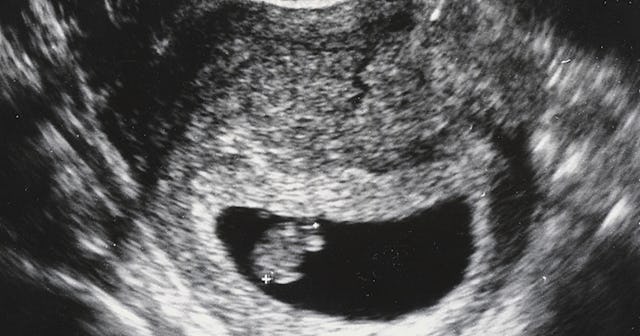11-Year-Old Rape Victim Would Be Forced To Have Her Baby Under New Ohio Law

The girl, who was repeatedly raped by a 26-year-old, would have had to carry the baby to term under Ohio’s “heartbeat law” which goes into effect in mid-July
An 11-year-old Ohio girl who became pregnant after a series of rapes has the option to get a legal abortion – but in just a couple of months, when the “heartbeat law” is slated to go into effect, the child would be forced to carry the baby to term.
Why? Not only does the new and extremely restrictive anti-abortion legislation outlaw abortions after six weeks (before many women even know they’re pregnant), it also doesn’t cover exceptions for issues like rape, incest, or maternal age. The only exceptions that are granted are in cases when the life or health of the mother is in danger.
This is just one example of girls and women who would be forced to carry and give birth to babies – according to the FBI, 4,000 women are raped each year in Ohio (or rather: that’s the tiny fraction who report it to the police) and 800 reported rapes involve incest.
But this doesn’t bother the white, male lawmakers in Ohio who have forced the law through despite the obvious harm it will cause.
Ohio Governor Mike DeWine, who signed the bill, put the rights of the fetus squarely above any rights of the mother. “The essential function of government is to protect the most vulnerable among us, those who don’t have a voice. Government’s role should be to protect life from the beginning to the end.”
Apparently, “the most vulnerable among us” will not include an 11-year-old rape victim, starting in mid-July.
The heartbeat bill, called the Ohio Human Rights Protection Act, isn’t Ohio’s only problem when it comes to women’s rights and bodily autonomy. Even currently, the state has extremely strict abortion laws that make it exceedingly difficult to choose. There’s a complete ban on abortions over 20 weeks, and minors either have to have parental consent or argue their case before a judge.
“There’s so much that already has to fall in place already for a girl like her to have an abortion in Ohio, never mind a six-week ban,” Elizabeth Nash, a senior state issues manager at the Guttmacher Institute, a reproductive rights research organization, told CBS.
It’s unclear what will happen in the case of this girl–but what we do know is depressing. The “pregnancy care center” that interacted with her has engaged in what sounds like blatant victim-blaming, by describing the 11-year-old as “rebellious” and the rapes as “non-forcible,” as if an 11-year-old could ever possibly consent to sexual intercourse, and as if this was at all her fault. The police, too, noted the girl’s “delinquent behavior,” as if she doesn’t need all the help and support in the world right now.
Her alleged rapist, Juan Leon-Gomez, has been indicted for felony rape and obstruction of official business by the Stark County Court and will appear in court later this May.
Ohio is one of six states to pass “heartbeat” bills in recent months, with Georgia joining the pack most recently in addition to Iowa, Mississippi, North Dakota, and Kentucky. Alabama is voting on the issue soon.
In the last four cases, the law is being blocked by federal judges. In Georgia and Ohio, organizations like the ACLU are gearing up for a fight, claiming that the bills are unconstitutional due to Roe v. Wade. At the same time, women in the effected states are preparing for a world where they could be punished simply for making a medical decision about their body.